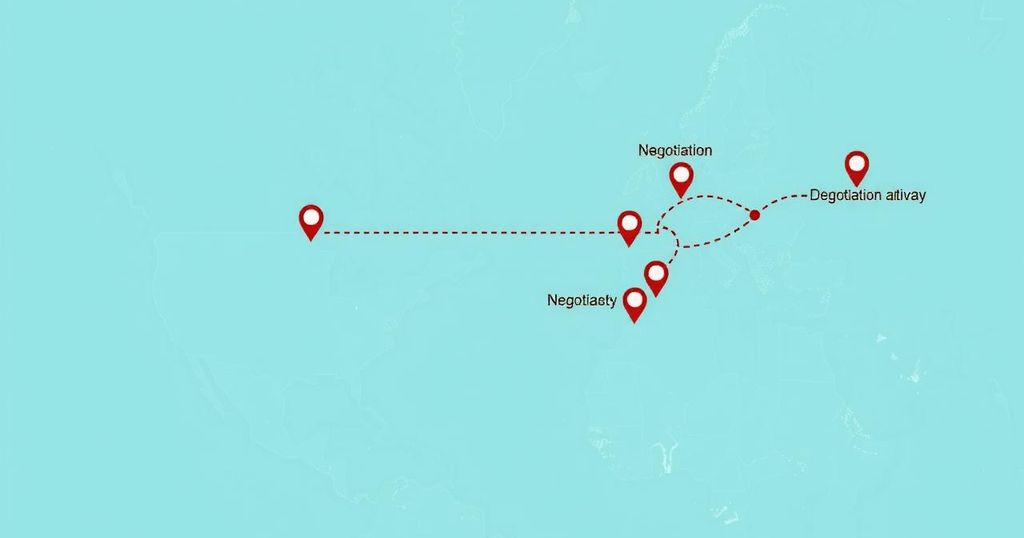Diplomatic Talks on Repatriation of North Korean POWs between Ukraine and South Korea

South Korea and Ukraine are negotiating the repatriation of two North Korean soldiers captured during the conflict. Critical points include South Korea’s constitutional stance, the desire of the captured soldiers to defect, and implications for regional security. The negotiations reflect broader tensions and the risks involved with the ongoing military support from North Korea to Russia.
On March 17, 2025, South Korean and Ukrainian diplomats discussed the repatriation of two North Korean soldiers captured during the Ukraine-Russia conflict. South Korean Foreign Minister Cho Tae-yul and his Ukrainian counterpart, Andrii Sybiha, addressed the soldiers’ possible transfer to South Korea, emphasizing the unique constitutional view that considers North Koreans as South Korean citizens, contingent on their desire for relocation.
The talks are motivated by North Korea’s increased military support to Russia, with around 12,000 troops estimated to have assisted Russia during its manpower crisis. As of early January, reports indicated that over 4,000 North Korean soldiers had been casualties, with a significant number killed. The two captured soldiers were taken alive on January 11, 2025, marking a rare instance of surviving North Korean personnel captured in the ongoing conflict.
South Korea’s involvement in North Korean affairs dates back decades, with about 34,000 defectors welcomed since the late 1990s, which adds complexity to the current negotiations. Offering refuge to the soldiers may enhance South Korea’s humanitarian stance but risks diplomatic relations with both North Korea and Russia. The captured soldiers must express a desire to defect, but as of January, they had shown no intent to seek asylum, complicating their situation further.
Reports of North Korean troops’ assault tactics add tension to the conflict, indicating their crucial involvement on the frontlines. Analysts suggest that high casualty rates among North Korean forces may stem from their lack of combat experience, contributing to severe losses during operations.
South Korean Foreign Minister Sybiha emphasized the damaging impact of the Russia-North Korea partnership on regional security, stressing the need for increased cooperation between South Korea and Ukraine. However, uncertainty looms over whether the detained soldiers will indicate any intention to relocate, which could reflect either caution regarding their role in international negotiations or strategies employed by North Korea.
Dissenting opinions persist, exemplified by North Korean defector Yeonmi Park’s critique of Ukraine’s potential link between POW repatriation and arms trading. Additionally, Ukrainian President Zelensky highlighted the dangers of capturing North Korean military personnel, noting the risks posed to Ukrainian forces and the captured soldiers’ lives.
The future of the captured soldiers and broader geopolitical implications remain unclear, particularly given North Korea’s silence on the proposal from South Korea. The outcome of these negotiations may significantly influence international relations amid ongoing tensions marked by decades of conflict.
The negotiations between South Korea and Ukraine regarding the repatriation of North Korean soldiers illustrate the complexities of humanitarian and strategic military concerns. The constitutional interpretation regarding the status of North Koreans, the potential diplomatic repercussions, and the captured soldiers’ willingness to seek asylum are all crucial elements in this evolving situation. Despite potential benefits for South Korea’s humanitarian image, the risks associated with relations with North Korea and Russia, coupled with the geopolitical implications, leave the overall outcome uncertain.
Original Source: evrimagaci.org







